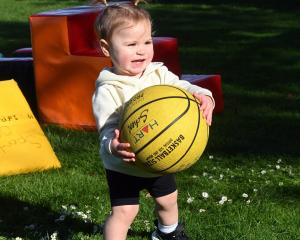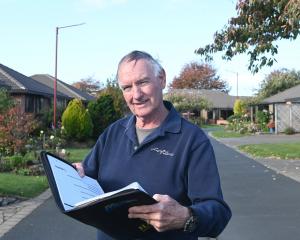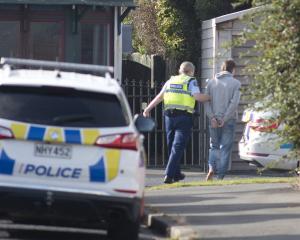Dr Walthert fears a change to the age threshold could shake women's confidence in breast-screening generally.
Debate was ignited last week by University of Otago Wellington academics Dr Caroline Shaw and Associate Prof Diana Sarfati, who have written public health blog posts saying the benefit of breast cancer screening is much less than previously thought, because of cancer over-detection and other issues.
New Zealand starts breast-screening at 45, earlier than Australia, Canada, or the United Kingdom.
Screening could detect cancers that would never cause a problem in a person's lifetime, the blog said.
''The problem is that when we identify a breast cancer through screening we can't always tell if it is a cancer that is going to cause a problem or not. So we have to treat them all.''
Treatments, such as radiotherapy, could be ''mutilating, painful and involve long-term side effects'', the blog said.
Substantial advances had been made in breast cancer treatment since randomised control trials (RCTs) of screening in the 1970s and early 1980s and, consequently, survival and mortality had improved considerably.
''The balance of benefits and harms in this age group is not favourable. In New Zealand, we need to stop screening women under 50 and start being more honest about the lack of clarity about the evidence for screening in older women,'' Dr Shaw and Prof Sarfati said.
Dr Walthert, who developed a cancer survivorship programme for the Otago-Southland division of the Cancer Society after her own experience of breast cancer, said screening programmes always involved some over-diagnosis and under-diagnosis. It was difficult because science was constantly shifting.
''The screening programme should make its decisions based on the science but ... the science does not know 100%. It can only say on balance what the best thing to recommend is.''
Women in that age group needed to be able to make the decision on screening themselves, after hearing the pros and cons.
''I think it will be hard for NZ to change back to age 50 for breast-screening, even if the science tells us this is the best thing to do.
''I would worry that women would be made to feel uneasy about screening in general.''
If the age was changed, it would need to be accompanied by a strong education programme.
''Women need to be empowered through understanding science in simple terms and there are some excellent brains in NZ capable of helping the health department with that task.''
University of Otago screening authority Associate Prof Brian Cox said the resources used to screen women under 50 would be better used for other services.
The lack of evidence for the benefits of screening this age group had been evident for more than 20 years.
He believed there were financial agendas at play keeping the age at 45, but said cost pressures in health increasingly meant funded services had to be effective.
Even the United States had shifted the age at which testing started in response to the scientific evidence, Prof Cox said.
Breast Cancer Foundation chief executive Evangelia Henderson strongly disagreed with the call to lift the age and said breast cancer detections in women under 50 had saved hundreds of lives.
''In 2012, we had 423 women aged between 45 and 49 diagnosed in New Zealand with breast cancer, and that's invasive breast cancer we're talking about.''
BreastScreen Aotearoa clinical leader Dr Marli Gregory told the Otago Daily Times there was no plan to review the age.
The Ministry of Health's National Screening Unit regularly monitored international literature and other international screening programmes, she said.
''In New Zealand, there has been a steady reduction in breast cancer mortality rates since 1990,'' Dr Gregory said.
The breast-screening authority had commissioned a mortality study to assess the breast screening programme. Results would be available next year.
Additional reporting by APNZ.












